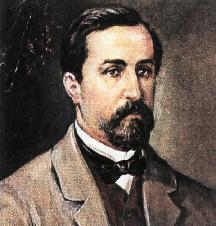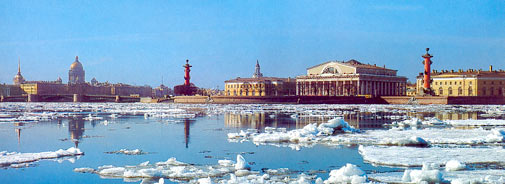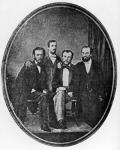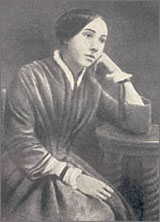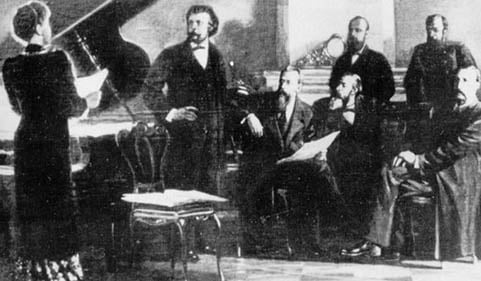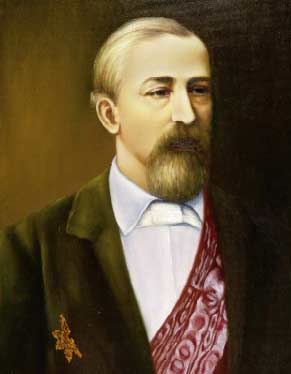
"As a composer seeking to remain anonymous, I am shy of confessing my musical activity... For others it is their chief business, the occupation and aim of life. For me it is a relaxation, a pastime which distracts me from my principal business, my professorship. I love my profession and my science. I love the Academy and my pupils, male and female, because to direct the work of young people, one must be close to them." - Alexander Borodin Contrary to what Borodin wrote long ago, of his two loves (science and music), he never could choose one completely over the other. For most of his life, he dashed from the laboratory to the piano and back again. And another, just as vital, part of his busy life was his devotion to the care of his fellow human beings. . . |
| Alexander Borodin - Chemist and Composer |
MUSICIAN HERO:
ALEXANDER BORODIN
by Rebecca Miller from Laguna Beach
Alexander Porfiryevich Borodin was born in St. Petersburg, Russia in 1833. He was the illegitimate son of an elderly prince from Georgia, Luke Gedeoneshvilli, whose family was descended from one of the last kings of Imeritera in the Caucasus. Prince Luke had fallen in love with Alexander’s mother, Narva, who was then twenty-four. Since there was no option available for marriage to the prince, Alexander's mother later married a retired army doctor. In the meantime, as was common in those days in Russia for a child born out of wedlock, Alexander would be given the last name of a servant or serf, belonging to the prince. The chosen serf's name was Porfiry Borodin. Alexander grew up in a privileged household. He was a bright child, eager to learn and gifted in music. His mother doted over him (although she insisted he call her "Aunt Mimi"). She arranged for him to be taught at home and Alexander was quick to learn French, German and Italian. He studied the flute and violoncello with his tutors and taught himself to play the violin. He became an enthusiastic concertgoer at the age twelve. Excited by the music he heard, he eagerly composed a concerto for the piano at the age of thirteen and then a trio for two violins and a cello. Borodin also loved organic chemistry and this interest was encouraged by his mother's husband, the army doctor. Borodin often experimented in making fireworks and chemical electricity (galvanization). His mother, approving of his interest in science and believing music to be an undignified profession (a common attitude in Russia during this time), she firmly enrolled him at the St. Petersburg School of Medicine. However, as a medical student, Borodin did not give up on his beloved music; he formed his own string quartet! Whenever time allowed, he would walk several miles, his cello under his arm, to join his musician friends for an all-night session of music. This balancing of his two loves would set a pattern for how Borodin would live the rest of his life. Borodin did well at the university. He was highly praised for his work, although his science professor would sometimes complain that he spent too much time on music.
Dmitri Mendeleev (originator of the periodic table of chemicals).
While studying in Heidelberg, Germany, Borodin met the love of his life. Ekaterina Protopova, an accomplished Russian pianist, had come to Germany for treatment of her tuberculosis. The two would frequently go to concerts together and they became fast friends as they shared their passion for music. Ekaterina introduced him to the music of Schumann and Chopin. She was also a fervent proponent of women’s rights. Borodin was so inspired and impressed by her that he became involved in this crusade as well. And Borodin did not just talk about it – he later did something about it! The two lived in Italy for four years, due to Ekaterina's illness. Borodin took advantage of the mild climate to conduct some chemical experiments that were difficult to do in the frozen north. In 1863, they returned to St. Petersburg and married.
called the Borodin reaction.
Borodin, a handsome man who was six feet tall, dark-eyed, and had a warm smile, was much liked by all who knew him. As a teacher, he was beloved by his students who said he had a “brilliant and fascinating personality.” He, in turn, was passionately concerned for their welfare, always going out of his way to help them. His classroom was a joy for he was cheerful, witty and always ready to talk about music or hum a tune as he conducted his experiments. It was said that he could write music no matter where he was. Often, he would jot down a catchy bit of music between classroom lectures. After work, he would continue with his experiments in a laboratory next to his apartment. His visiting musical friends would tell of the many times that Borodin would become fervently involved in music or conversation, then suddenly jump up and dash out of the room to see whether one of his experiments had boiled over.
Incredibly, since Borodin was primarily a professor of chemistry, he had also managed to earn respect and admiration for his music. And this was from some of the leading composers of his day! He became a valued member of the “Mighty Handful,” also called the “Russian Five.” This group, which included Balakirev, Rimsky-Korsakov, Mussorgsky and Cui, was the most influential group of composers in all of Russia. They had one passion in common: to incorporate the beautiful folk music of their country into the classical music of the European tradition. Not for them, an insipid copy of Italian opera – or a second-best rendering of a German symphony! No, the Russian Five was inspired to make an entirely new, vibrant sound. Russian classical music found its national soul through this integrative tradition and it showed the way for many of Russia’s most pre-eminent composers to follow – composers such as Stravinsky, Rachmaninoff, Prokofiev and so many more. As for Borodin, he wrote music in the same way that he conducted his experiments - with careful attention to details and patterns. The mood of his music, though, was optimistic and it evoked strong Russian themes of nature and beauty. He was intuitive also. Perhaps his intuitive understanding and caring for those around him made him intuitive in his music. When he composed the Polovtsian Dances for his opera, Prince Igor, no one knew what the musical style of those Asian nomads was (since they were extinct by the 19th century). However, a century later, scientists studied the music of an ethnic branch of these peoples and Borodin was proved to be right! Some wonder if it's possible that his own Caucasian heritage, through Prince Luke Gedeoneshvilli, had something to do with it. With all of his gifts, Borodin’s only handicap was in how little time he could devote to his music. His health was not the best, but he never failed to take advantage of the free time his illnesses gave him to compose. His friends would sometimes joke that they wished he would become ill more often, so that he could stay home and concentrate on his music! How did Alexander Borodin manage all this? Borodin called himself a “Sunday composer.” Any extra time he had, he would devote to his music. But how little time there was! Science and music were not the only things to keep him busy. Because he was a professor, he was frequently asked to assist many charities and he seldom refused. His kind heart could never say no to those in need. This included stray cats as well as relatives… Rimsky-Korsakov wrote in his memoirs that the Borodin’s apartment, "…was often used as a shelter or a night’s lodging by various poor (or ‘visiting’) relations, who picked that place to fall ill or even lose their minds. Borodin had his hands full of them, doctored them, took them to hospitals… In the four rooms of his apartment there often slept several strange persons of this sort – sofas and floors were turned into beds."Borodin even worried that his piano playing might wake his guests and he would often give up his plans for composing on those nights.
The young composer, Shostakovich, who greatly admired Borodin's music, once said bitterly that Borodin should have had a monument raised to him for all the time he spent on the feminist cause. "He would get one of those monuments too, because he plunged headlong into women's education and spent more and more time as he grew older on philanthropy, primarily for women's causes, and these butchered him as a composer..." Yet, in spite of all this, Borodin made an enormous impact on the music of his day - and on all of modern music to come. "He wrote music of great originality and beauty -- bold orchestral tone poems on exotic lands and subjects, as well as Russian nationalist works influenced by folk melodies and featuring astonishing harmonic and rhythmic innovation (chords in fourths, harmonies with nonharmonic "added tones," quasi-jazz syncopation)." ~ Blue Gene Tyranny, All Music GuideBorodin's music did not captivate just Russian composers; the French composers Ravel and Debussy, admired him as well. The quality of his music more than made up for its lack of quantity. And all of this from a busy chemist, teacher/mentor, activist and philanthropist! Just imagine what he might have done if he had had more time! On the night of February 15, 1887, Borodin was taking part in a fancy dress ball at his home for the professors of the Academy. Dressed in a traditional Russian costume of red shirt and high boots, Borodin was engaged in vigorous dancing when he suddenly collapsed and died from a burst artery to his heart. Although he was only fifty-four, the doctors found from his autopsy that the artery had been so fragile that it was astonishing that he had lived as long as he did. Ekaterina, who had been in ill health for some time, was unable to attend the funeral and she died only a few months later. Alexander Borodin is my hero. I cannot think of a more stellar example of someone who knew what it meant to live fully, and yet still give so much to others, than Alexander Borodin. He was productive and loving by nature; he was passionate and perseverant about his work in science and in music, while always remaining true to himself. He was kind-hearted and cared deeply for his fellow human beings, to the extent of putting them first without a thought for himself. He was humble in everything, yet joyful and full of fun. He was devoted to his wife, his friends, his students, and anyone else who came under his notice and care. He worked tirelessly for women in Russia to have the right to a career in medicine – and he succeeded by founding the famous Russian Courses of Medicine for Women, enabling their breakthrough into the profession of medicine.
And, on top of all that, he composed some of the loveliest, most memorable music of all time.
|
| Written by Rebecca Miller from Laguna Beach |
*Internet Required to view links* Alexander BorodinOverview of his personal life, his contributions to science and musicThe Face of RussiaThis PBS series takes viewers on a remarkable journey through Russian history. An interactive timeline through ten centuries of art, architecture, music, dance and cinema reveals the major events that shaped Russian culture. The Mighty FiveGood essay on the contributions of each composer and of how they conspired together to change the sound of Russian classical music Illustrated history of St. PetersburgWhere Borodin lived most of his life. Click on the years (1800-1855) and (1840-1895) to get an idea of Borodin's era. Borodin's musicDescriptive essay on the shaping of Borodin’s music |
Orchestral Works • Symphony No. 1 in E-flat • Symphony No. 2 in b minor • Symphony No. 3 (unfinished) • Symphonic Sketch "In the Steppes of Central Asia" 1880 – Borodin called this a “musical picture.”
Chamber Music Operas
• The Heroic Warriors [Bogatyry]
Songs
Excellent site for a more detailed exploration
of
This story was made possible by a grant from The Alfred P. Sloan Foundation. |
 | 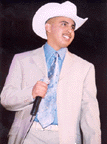 | 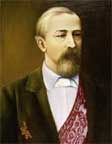 |  |
| Ray Charles Robinson although blind and deaf, was a talented musician | Adan was a beloved Mexican singer who often donated earnings to charity. | Alexander Borodin was an accomplished chemist, composer and staunch advocate of women's rights. | Antonin Dvorák compositions influenced other artists. |
 |  |  |  |
| Bob Marley had a vision of One World, One Love. | Charlie Parker was a great musician and father. | Dexter Gordon was a musician nominated for an Oscar. | Fela Kuti was a revolutionary musician from Nigeria. |
 |  |  | 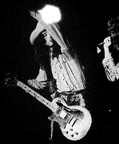 |
| Frank Zappa was a musician and composer with a flair for the absurd. | Franz Liszt was a musical composer and piano prodigy. | Inul Daratista is an Indonesian singer fighting to break cultural boundaries | Jimmy Page continues to be an inspiration to musicians worldwide. |
 |  |  |  |
| John Lennon wrote 'All You Need is Love.' | Katie Lee is a passionate advocate for wilderness. | Ludwig van Beethoven was one of the greatest composers of classical music. | Marian Anderson was a world-renowned opera singer. |
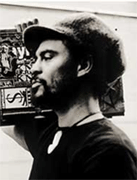 |  |  |  |
| Michael Franti sends a message of peace and tolerance through his music. | Paul Robeson was a performer who was deeply committed to political causes. | Philly Bongole Lutaaya was the first Ugandan to put a human face on AIDS. | Raffi continues to inspire a generation of children and their parents with his music |
 |  |  |  |
| Reba McEntire is the 'Queen of Country' music and a generous humanitarian. | Scott Joplin composed operatic and ragtime music. | Shania Twain is a beloved country music singer who overcame the odds. | Stephen Sondheim composed popular Broadway musicals. |
 |  | ||
| Steveland Morris (a.k.a. Stevie Wonder) is an incredible pianist and singer. | Wolfgang Amadeus Mozart was one of the world's great composers. |
 |  |  |  |
| Alan Turing laid the theoretical groundwork for the first computer. | Albert Einstein believed in the power of imagination. | Alexander Borodin was an accomplished chemist, composer and staunch advocate of women's rights. | Ameen Abdulrasool is a young inventor who developed a portable navigation system for the blind. |
 |  |  |  |
| Amy Charkowski works on the front lines of protecting Earth's food supply. | Andrea Mia Ghez is an astrophysicist best known for her discoveries about the black hole at the center of our galaxy. | Ariel Ruiz i Altaba Scientist - Photographer combines art and science to research how cells are generated and formed. | Audrey Penn: Just Do It is a medical doctor who has devoted herself to studying diseases that affect muscle control. |
 |  |  |  |
| Augusta Ada Byron developed the world's first computer program while struggling with her own personal hardships. | Barbara McClintock a distinguished geneticist and Nobel laureate | Ben Carson is the chief of neurosurgery at Johns Hopkins University Hospital. | Benjamin Franklin was an inventor, diplomat, writer, and a huge influence on American history. |
 |  |  |  |
| Beth Rickard Environmentalist is an advocate of solar as the energy of the future. | Charles Darwin is the father of modern biology. | Chiaki Mukai is the first female Japanese astronaut. | Christiane Nusslein-Volhard is a Nobel Prize winner and pioneer genetic researcher. |
 |  |  |  |
| Claudia Gerwin: Keeping the Neurons Firing researches how nerve cells relay messages to each other. | Clifford V. Johnson is a string theorist who studies the makeup of the smallest particles of the universe. | Connie Samaras has created media archives for deep space voyages. | Courtney Schumacher is an atmospheric scientist and educator committed to mentoring young women interested in science. |
 |  |  |  |
| Cristina Diaz: Biologist studies intertidal and tropical sponges. | Dame Cicely Saunders founded the modern hospice to provide compassionate, holistic care to the dying. | Darlene Ketten studies stranded whales and dolphins. | Debbye Turner became Miss America and pursued her dream to become a veterinarian. |
 |  |  |  |
| Dilfuza Egamberdiyeva Environmental Microbiologist cares for the Earth's soil, researching ways to produce microbes to control plant diseases. | Dr. Alexander Langmuir Langmuir's work in epidemiology has saved millions of lives. | Dr. Barbara Ross-Lee became the first African American woman dean of a US medical school. | Dr. Caldicott has been a lifelong anti-nuclear activist. |
 |  |  |  |
| Dr. Edward Jenner discovered the vaccine. | Dr. Elizabeth Kalko and the Jason Project studies bats in the Panamanian rainforest. | Dr. Elvia Niebla Soil Scientist is dedicated to soil conservation. | Dr. France Cordova is a renowned astrophysicist who has broken gender and cultural barriers. |
 |  |  |  |
| Dr. Gloria WilderBrathwaite was inspired to provide health care to the poor in the innner city. | Dr. Govindappa Venkataswamy cares for the eyes of millions of people in India. | Dr. Inés Cifuentes Seismologist works to improve science programs for students in Washington, DC. | Dr. Karen Plaut has been a pioneer in animal science research. |
 |  |  |  |
| Dr. Kay Jamison is both an expert on, and a sufferer of, Bipolar Disorder. | Dr. Kristi Curry-Rogers is an accomplished paleontologist who travels the globe in search of dinosaur digs. | Dr. Michael DeBakey is the father of modern open-heart surgery. | Dr. Patch Adams gives the practice of medicine a humorous twist. |
 | 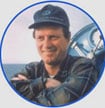 |  |  |
| Dr. Richard Murphy Marine Biologist educates others about the sea and ways to protect the oceans for the future. | Dr. Robert Ballard and the JASON project bring scientific exploration to children around the world. | Dr. Rosalie Bertell Anti-Nuclear Nun is a renowned scientist, eco-feminist and peace activist. | Dr. Sara W. Lazar Neuroscientist - Meditator researches the effects of meditation on the brain. |
 | .jpg) |  |  |
| Dr. Sue Savage-Rumbaugh is a scientist dedicated to the study and conservation of bonobos. | Dr. Susan Love is committed to women's health issues. | Dr. Zeda Rosenberg is working to provide women with a way to protect themselves from contracting HIV/AIDS. | Enrico Fermi was one of the 20th century's greatest physicists. |
 |  |  |  |
| Erich Jarvis observes song birds and uses his training with molecular biology to learn about brain behavior. | F. Sherwood Rowland discovered the 'greenhouse effect.' | Fati Kirakoya: L'Oreal-UNESCO, Women in Science Fellow is a researcher committed to helping find solutions to end the AIDS crisis. | Frederick Banting was the co-discoverer of Insulin. |
 |  |  |  |
| Friends of the Sea Lion rescue, treat, and release these mammals back into the ocean. | Gail Kaaialii: Biologist investigates the origins of life and helps others value all life forms. | Galileo was the first to use a telescope to observe the stars and planets. | George Washington Carver is famous for experimenting with plants. |
 |  |  | 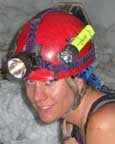 |
| Gertrude B. Elion developed the AIDS drug, AZT. | Gina Gallant is an inventor whose passion is protecting the environment. | Grace Murray Hopper was a computer visionary. | Hazel Barton combines her passion for caving with researching microbes. |
 |  |  |  |
| Irene Ayako Uchida helped find the link between radiation and birth defects. | Irene Curie specialized in nuclear physics, the science of studying the nucleus of the atom. | Jack St. Clair Kilby invented the microchip. | Jane Mt. Pleasant is an agricultural scientist who looks to the past to meet today's farming needs. |
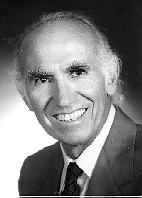 |  |  |  |
| Jonas Salk discovered the polio vaccine. | Kathy Sullivan was the first American woman to walk in space. | Leonard Adleman improves lives with his work in DNA technology. | Leonardo da Vinci was an artist and a scientist ever curious of the world around him. |
 |  |  | 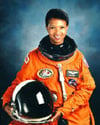 |
| Louis Pasteur 's discoveries advanced the practice of medicine. | Luz Maria Rodriguez-Fernandez conducts cancer research to help understand the disease process. | Madame Curie received the Nobel Prize for her discovery of Radium. | Mae Jemison dreamed of going to space since childhood. |
 |  |  |  |
| Magdalena Hurtado is an anthropologist who studies the Ache people of Paraguay. | Marie Curie discovered radioactivity as an atomic property, opening the door to 20th century science. | Meenakshi Wadhwa studies meteorites and the processes involved in their formation. | Nikola Tesla was the father of many modern inventions. |
 |  |  |  |
| Orville and Wilbur Wright were brothers determined to build a better flying machine. | Paul Farmer has dedicated his life to treating people in the poorest nations in the world | Paul Munsen Solar Oven Man manufactures sun ovens, which harness the sun's rays to provide an environmentally safe source of energy. | Paul Sipiera led an expedition into Antarctica to find meteorites for NASA. |
 |  |  |  |
| Philo T. Farnsworth ,the inventor of the television. | Robert Koch was an important medical researcher of the 19th century. | Rokhaya Gueye treats malaria and raises awareness about women's health issues in Senegal. | Shannon Hackett studies the genetic diversity and evolution in tropical birds. |
 |  |  |  |
| Sir Alexander Fleming : his discovery of penicillin saved millions of lives. | Srinivasa Ramanujan made groundbreaking contributions to mathematics. | Stephanie Jenouvrier UNESCO-L'Oreal Women in Science Fellow is a population ecologist researching the effects of climate change on emperor penguins. | Stephen Hawking is a renowned theoretical physicist who writes about 'black holes'. |
 |  |  |  |
| Tania Ruiz is an astrophysicist committed to science education and helping women reach their goals. | Thomas Alva Edison holds the record for number of patents filed. | Tom Chau Biomedical Engineer uses science and technology to maximize opportunities for people with disabilities. | Tom Dibblee is a legendary geologic mapper. |
 |  | 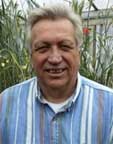 |  |
| Usha Varanasi is the first woman to lead a Fisheries Science Center. | Vladimir Kosma Zworykin is called 'The Father of Television'. | Wes Jackson was a professor who returned to the land to advance sustainable agriculture practices. | Wilson Bentley was the first person to photograph a single snowflake. |
 |  | ||
| XIV Argonauts broadcasted their explorations of the Channel Islands. | Zohra Ben Lakhdar is a physicist from Africa who does research on atomic spectroscopy. |
Last changed on: 4/8/2006 2:10:24 PM
|
angel | animals | artists | business | child | community | earthkeepers |explorers | faith | family | freedom | lifesavers | literary | musician | heroes in the news | peacemakers | poets | scientists | sports | teachers | women | writers |
